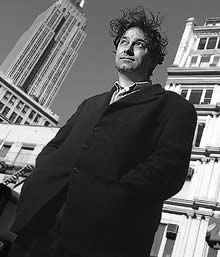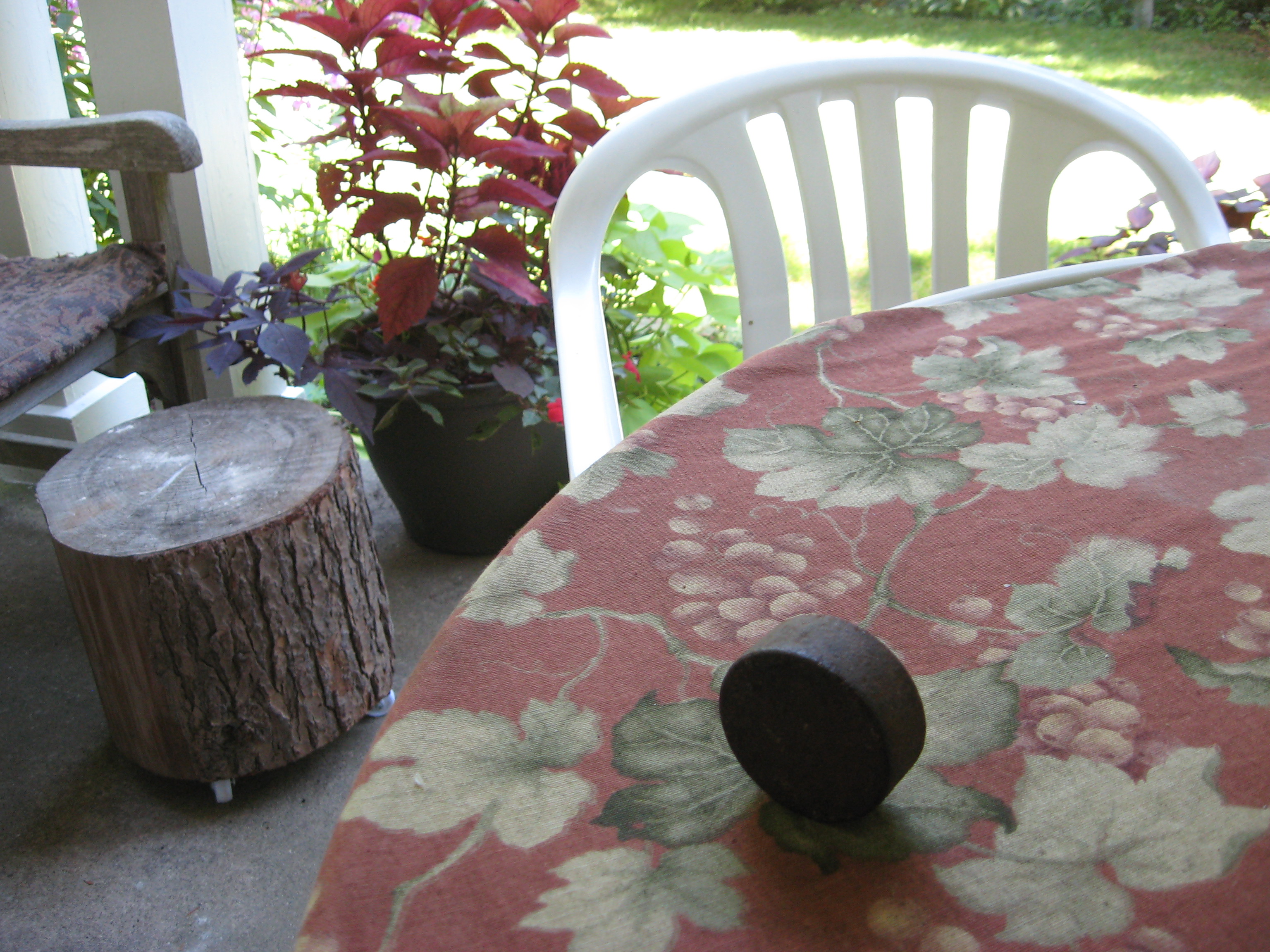The walk to the Kingston Public Library is always wonderful, for what is new and for what is not. You walk the same half-mile loop and see the same trees, the same precarious limbs–you think, hurricane this fall: that one’s coming down–the patch of sand that is the bane of bicyclists, the house with the long walkway where you’ve never seen anyone come and go or a light on at night, yet the house looks lived in and cozy, the historical graveyard that, for God knows why, you’ve never checked out even after sixteen years here, the stupid drivers who never stop on Route 138 to let you or anyone else cross the street, and so on.

The Kingston Public Library, formerly the King's County Courthouse, where the first of two sessions to ratify the Constitution was held, in March, 1790. (The second and determining session was held in May, in Newport.) Observers are fond of concluding that Rhode Island was the last colony to ratify the Constitution due to an admirable and indomitable streak of poltical petulance. Not so. It's just that the roads were so bad no one could get to Kingston and Newport any sooner. They still are. (google image)
So it was, a few days ago, that I looked both ways umpteen times so as not to get flattened, and made it across Kingstown Road. As I stepped up from the roadway to the sidewalk in front of the library, my eyes grabbed an object that did not belong: a round iron disk, two and one-eighth inches in diameter and seven-eighths inches in depth. Mottled with rust. Heavy, and surprisingly so. Unexpected and attractive. Must take this home, I thought. I was immediately transported–pummeled, is more like it–to the world of Ben Katchor’s comic strips, a world where objects small and easily disregarded are made to be the linchpins of the universe.
Katchor’s work is essential, in the same way as is the work of, say, Art Spiegelman, John Ford, and Galway Kinnell. Each compels us to look again at the paths we trod, day in, day out, revealing gateways where the mundane and the eternal intersect.
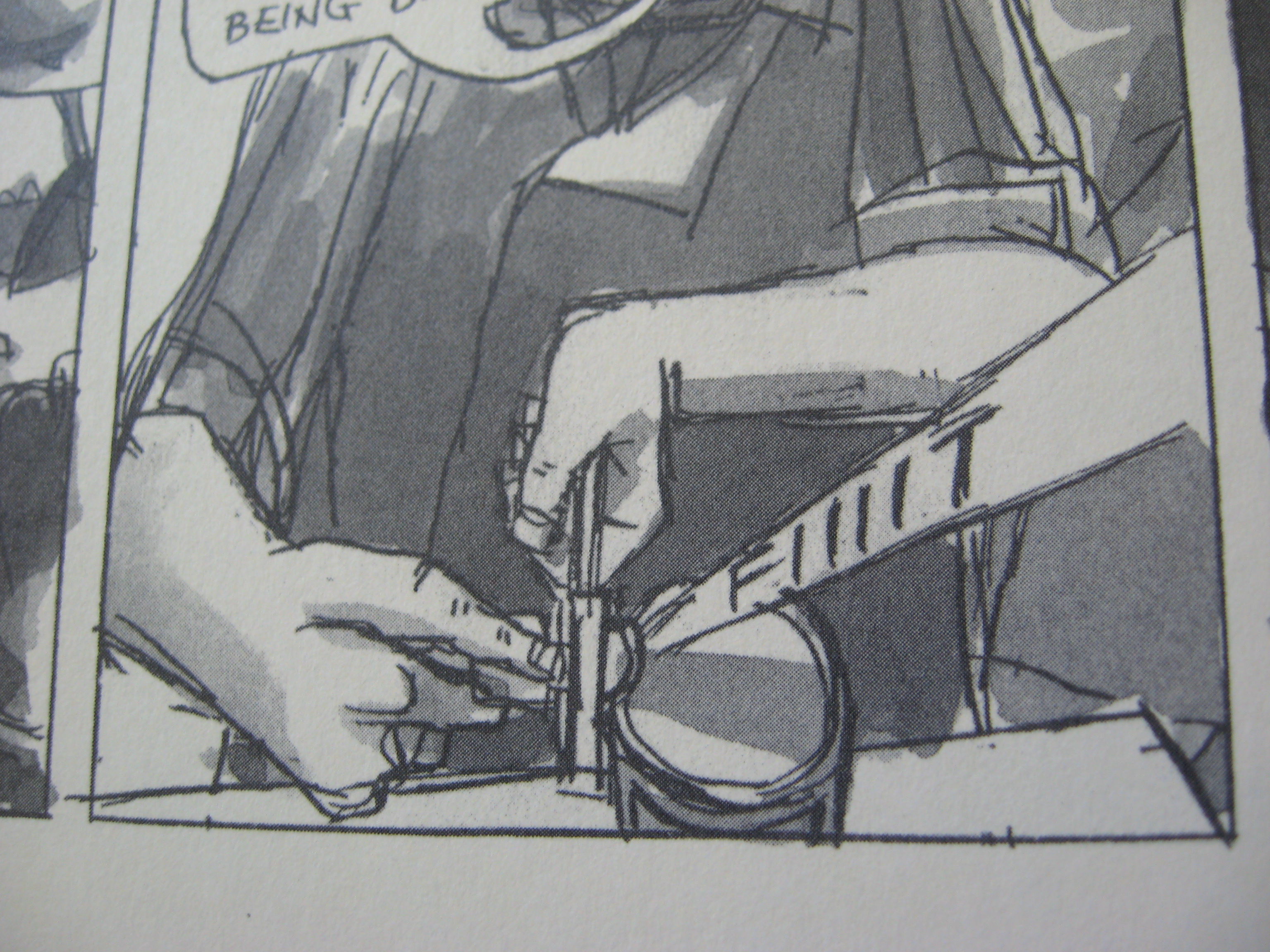
The sound of trapped air escaping. Is it "Geyser brand beef stew with tomatoes," "sentimental spaghetti with hidden meatballs," "premature pears in heavy syrup," or "unconscious picnic ham in its own sweat"? "The end of my spoon is absent," a character muses aloud, dipping a spoon into a hot bowl of pea soup while crossing the street, "but not gone." (from "The Cardboard Valise," New York: Pantheon Books, 2011--used with permission)
I discovered Katchor’s work many years ago during a long spell when I subscribed to The Forward, one of North America’s great newspapers, and saw his weekly strip, “Julius Knipl, Real Estate Photographer.” Katchor’s work is the recreation of a lost world even as it is the creation of a world that never existed. It is where our memories of the teeth of escalators mingle with the shadow play of light in revolving doors, where the look and feel and sound of brittle, yellowed cellophane tape on the pages of old scrapbooks collide with the taste of Christmas ribbon candy, where a man in boxer shorts and paper flip-flops reading a travel brochure about Outer Canthus and the Tensint Islands crosses the street to smack into a vendor of used staples.
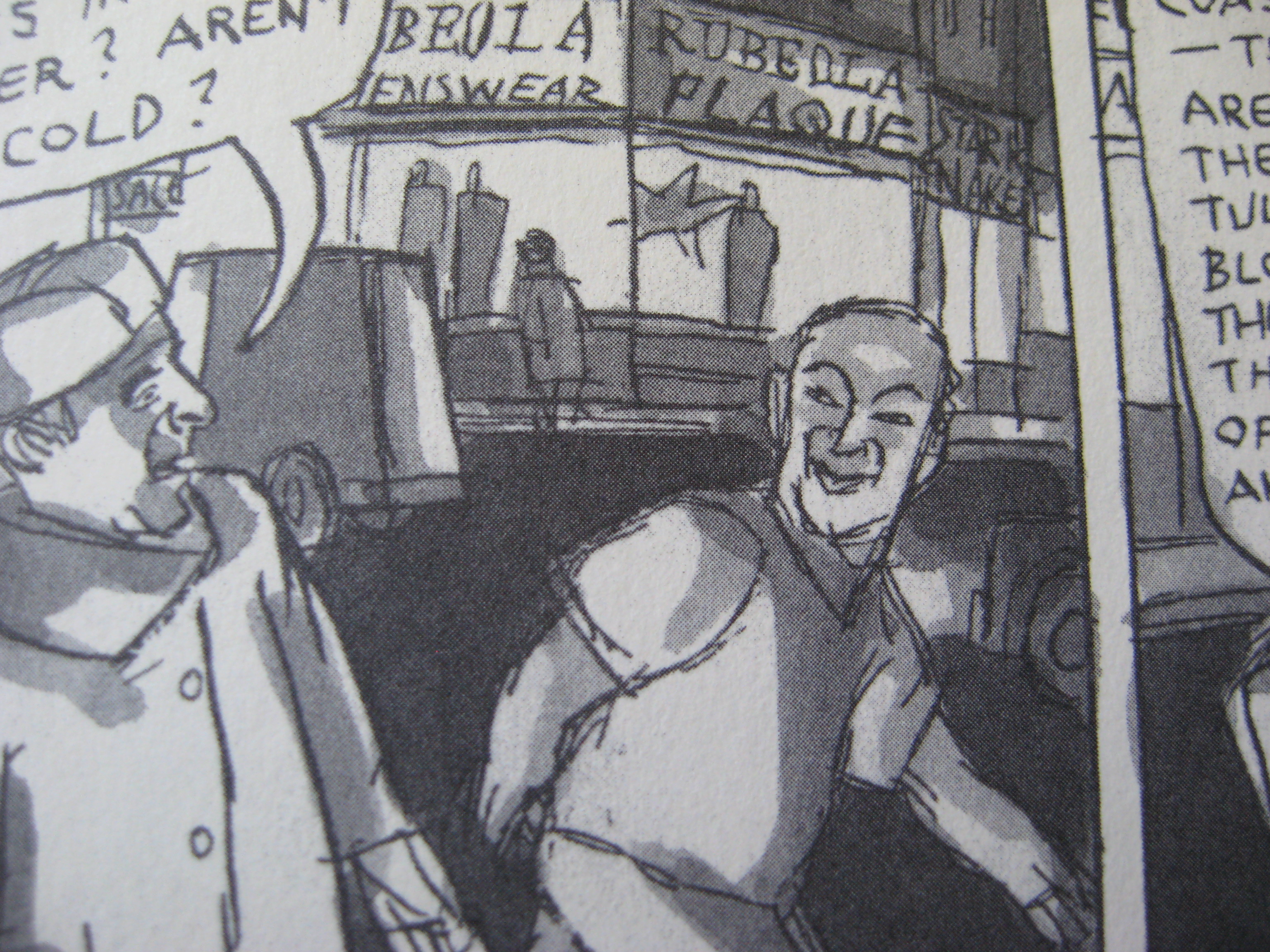
Katchor's protagonists, including Elijah Salamis--here seen crossing a windswept corner of Kavanah Avenue, on a cold night in Fluxion City, in his skivvies--are eternally bemused yet knowing, open to unexpected discoveries, confident that every detail of the ever-changing universe has purpose and meaning. (from "The Cardboard Valise," New York: Pantheon Books, 2011--used with permission)
Description is useless. Walk, don’t run–no, wait: better yet, amble–to your nearest public library, and request everything that Ben Katchor has published. Seek him out online. Go to amazon.com or abebooks.com and spend your hard-earned money on his deserving art. His work is an endless delight.
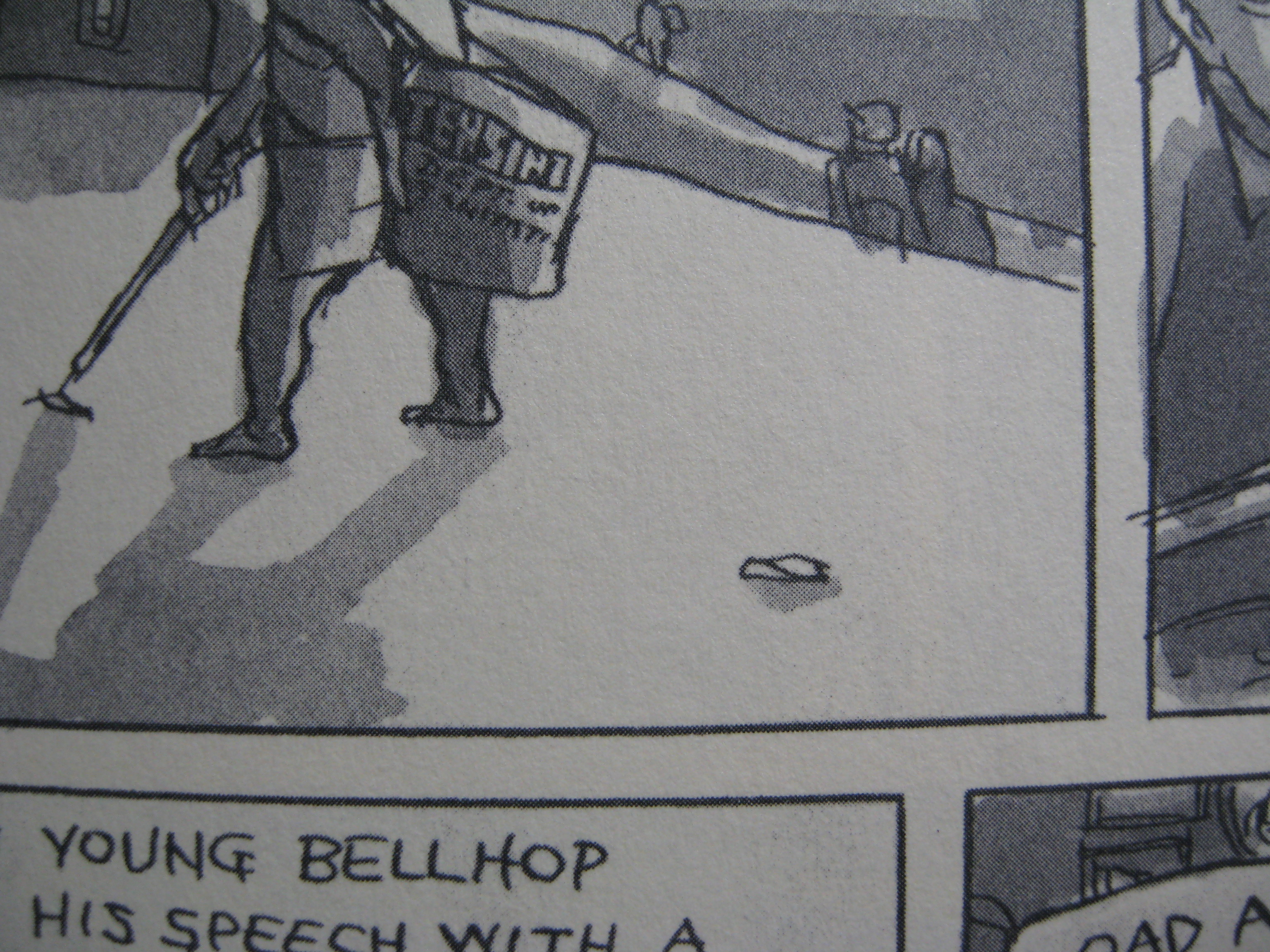
Litter and its shadow, made to be more than important: essential. (from "The Cardboard Valise," New York: Pantheon Books, 2011--used with permission)
So. Here is what I found, in assorted, uncaptioned iterations. Okay, one caption.

